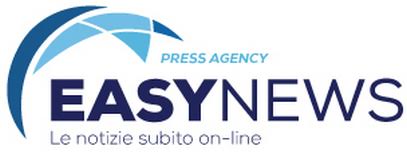
Far too many households across the European Region pushed into poverty after paying for health care, finds new WHO/Europe report
Rebuilding trust in and within our health systems is critical to achieving Universal Health Coverage
Under embargo until 00:01 CET, Tuesday, 12 December 2023
Tallinn, 12 December 2023
As health leaders from the WHO European Region gather in Estonia for a landmark Health Systems Conference to mark 15 years since the Tallinn Charter highlighted that people shouldn’t become poor because of ill health, a new WHO/Europe report covering 40 countries in Europe finds that millions of people are still struggling to pay for healthcare.
Health systems’ heavy reliance on out-of-pocket payments means many people experience financial hardship when using health care or face barriers to access, resulting in unmet need. Out-of-pocket payments also push some people into poverty or make them even poorer. Globally, 4.5 billion people—more than half of humanity—are not covered by essential health services.
Paying for healthcare vs paying for food
New pre-pandemic data from 2019 show some concerning trends. Many countries in the European Region have significant gaps in population health coverage. Only 23 out of 40 countries report covering over 99% of the population; the incidence of catastrophic health spending is three times higher in countries with gaps in population coverage compared to countries that cover over 99% of the population.
When looking at the poorest fifth of the population in a specific country, catastrophic health spending can be 2 to 5 times higher than the national average. Catastrophic health spending means a household can no longer afford to meet basic needs – food, housing and heating – because of having to pay out of pocket for health care.
This means that the poorest people are the ones most likely to suffer the most financial hardship. In a majority of countries (28) the incidence of catastrophic health spending increased over time, with an average increase of 1.7 percentage points, while in the remaining 12 countries the incidence of catastrophic health spending fell by 1.8 percentage points on average (see notes to editors for definition of ‘catastrophic health spending’).
Out-of-pocket payments for outpatient medicines are the main driver of financial hardship across countries, especially for the poorest fifth of the population, followed by medical products (e.g. hearing aids) and dental care. In the poorest 20 percent of households, spending on medicines is responsible for 60 percent of catastrophic health spending on average across the 40 countries.
The pandemic has worsened the situation for many, creating huge backlogs, forcing people to pay out of pocket for private health care and medicines, or simply created insurmountable barriers to access, leading to negative health outcomes.
Medicines, medical products and dental care are services that should be delivered or managed in primary care settings. The report’s findings indicate that there is a significant gap in the coverage of primary care in many countries in the Region.
“Our report shows that already before the pandemic, people were facing an unacceptable level of catastrophic health spending. As we mark International Universal Health Coverage Day, and in the wake of the devastation caused by the COVID-19 pandemic, it’s time to get health systems back on track,” said Dr Hans Henri P. Kluge, WHO Regional Director for Europe.
“For millions of people in the European Region, free or affordable healthcare is simply a dream. Many face excruciating choices like paying for medicines or treatment at the expense of paying for food or electricity. We simply can’t allow healthcare costs to impoverish millions of families. After all, health is a fundamental human right.”
WHO/Europe is urging countries to make five policy choices to improve financial protection and move closer to universal health coverage:
- Coverage policy should be adequately funded by public spending to ensure there are no major staff shortages, no long waiting times for treatment, and no informal payments.
- Entitlement to publicly financed healthcare should be de-linked from payment of social health insurance contributions. The relevant tax agency should instead deal with non-payment of health insurance contributions, not the health system.
- Healthcare user charges (co-payments) should be applied sparingly and designed in such a way so that people with low incomes or with chronic conditions are automatically exempt from all charges.
- Primary care coverage should include treatment, not just consultation and diagnosis. This will help reduce out-of-pocket payments for medicines, medical products, and dental care.
- Refugees, asylum-seekers, and undocumented migrants should be entitled to the same benefits as other residents, without administrative barriers to accessing entitlements.
Trust and transformation
When they signed the Tallinn Charter in 2008, every country in the WHO European Region committed to distribute the burden of financing the health system fairly, according to people’s capacity to pay, so that people aren’t impoverished as a consequence of using health services. Fifteen years later, universal health coverage remains far from reality in many countries across the region.
Various studies and surveys have pointed to a growing lack of trust in institutions and politicians, with a consequent impact on our health systems. Increasingly, people do not trust that health services will deliver for them when they are needed; health and care workers are losing trust that the system values them, leading to multiple strikes and industrial action across the region; and politicians do not trust the health system’s ability to reform in the face of new challenges (e.g. harnessing digital innovations) or to address issues of concern (e.g. a rapidly ageing population or health worker recruitment and retention).
“Trust is at the very core of a well-functioning health system,” continued Dr Kluge. “It plays a crucial role in delivering effective and high-quality health services. Trust is also essential if countries want to generate the needed financial resources to fund health care systems, especially if people are asked to provide these resources with their taxes and other contributions.”
Transforming our health systems requires the rebuilding of trust between the health system and three distinct societal groups, all of which demand distinct approaches:
- Patients and health system: rebuild trust by actively involving patients in their care, being transparent, and promoting community engagement through for example, citizens’ assemblies.
- Health workers and health system: rebuild trust by properly recruiting, retaining, and motivating health workers, and being sensitive to their mental health needs.
- Politicians/policymakers and health system: rebuild trust by investing in health leadership and governance and designing inclusive health policies in partnership with the health sector.
“Trust is the glue that holds our societies – including our health systems – together. Without it, everything collapses,” concluded Dr Kluge. “We need to transform our health systems to ensure that people everywhere can receive the right care, in the right place, by the right health and care workers at the right time. I am calling on countries to act with courage and conviction, to urgently address the growing trust deficit in our health systems.”
ENDS
Notes to editors:
- Catastrophic health spending occurs when the amount a household pays out of pocket exceeds 40% of its capacity to pay for health care. This may mean the household can no longer afford to meet other basic needs (food, housing and utilities).
- This new report from WHO/Europe is the first study to assess whether people can afford to pay for health care in 40 countries in Europe, including the whole of the EU. It updates an earlier report focusing on 24 countries in Europe (WHO Regional Office for Europe, 2019). (The remaining 13 countries in the WHO European Region were not featured in the report due to the challenge of obtaining internationally comparable data.)
- To provide actionable evidence for countries willing to move towards UHC, the report identifies who lacks financial protection, for which health services and why by: using national household budget survey microdata to measure the incidence, distribution and drivers of catastrophic health spending in 2019 or the latest available year before COVID-19; drawing on publicly available survey data on unmet need for health care, dental care and prescribed medicines; and reviewing coverage policy – the way in which health coverage is designed and implemented – across countries.
- The report also includes a simple analysis of the evolution of catastrophic health spending over time, using two data points for each country (the earliest and latest available years of data in each case). Additionally, it features an exploratory analysis of catastrophic health spending during the COVID-19 pandemic for a small selection of countries for which data for 2020 and 2021 are available.
- More in-depth information about each country featured in the report is available on UHC watch, an online platform designed to track progress on affordable access to health care in Europe and central Asia. The platform offers a wealth of country-level and comparative data and resources on financial protection and health financing and will include context-specific recommendations for each country.
- Together with WHO/Europe, the European Observatory on Health Systems and Policies has generated evidence to inform each of the Tallinn Charter Health Systems Conferences since 2008. For the 15th anniversary conference taking place on 12-13 December 2023, it has produced five policy briefs in support of this year’s themes of trust and transformation. The aim is to help policy-makers ensure that health system transformation can be done and done well to improve the health and well-being of European societies. The key messages are available here.
Contacts:
Ramy Srour, srourr@who.int
Bhanu Bhatnagar, bbhatnagar@who.int
Press Office, eupress@who.int
This information was brought to you by Cision http://news.cision.com
Regional Report 2023 – WHO WEB-FINAL |
WHo regional report summary 2023 FINAL |
If you would rather not receive future communications from WHO Regional Office for Europe, please go to https://optout.ne.cision.com/en/SAgrMyM2NSfBTJtFYP6DxUsPxuGcmX9agS3gyNcSeyvFV6SMFafQHr7CHrXo79dmJktxdZj7cELovySjLqizFXdDDk7EzH8APdDZEkgTYD5pjLCbK3hUdq2A1a7w17tXUtS.
WHO Regional Office for Europe, Marmorvej 51, Copenhagen, 2100 Denmark



